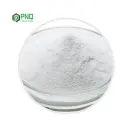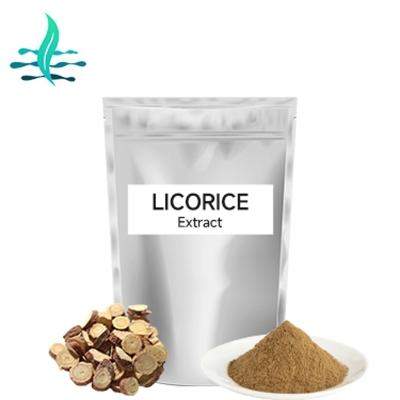Scientific facts about low-calorie sweeteners
-
Last Update: 2021-02-13
-
Source: Internet
-
Author: User
Search more information of high quality chemicals, good prices and reliable suppliers, visit
www.echemi.com
Low-calorie sweeteners (sometimes referred to as non-nutritional
-type
sweeteners, artificial sweeteners, or
saccharide substitutes
)
as ingredients
can be added to food and beverages
to provide
sweet
ness but do not significantly increase the amount of hot
. In fact,
they also play an important role in
weightprograms
including good nutrition
options
and
sports
activities.Low-calorie sweeteners have a long history of safe use in a variety of food and beveragefrom soft drinks
to
puddings
and
confectionery
to table
sweeteners.
, it
the
most studied food ingredient in the world,
and
has
passed rigorous safety assessments. U
.
the most common
and most
low-calorie sweeteners
widely used in food and beverage
acetaminophen (potassium acetyl sulfonate,
AK
Sugar)Asparta SweetNew SweetSaccharideStevia Sugar SweetenerSucraloseWhen low-calorie sweeteners are added to food and beverages, they can provide a taste similar to table sugar (sucrose), which is typically several hundred to several thousand times sweeter than sucrose. They are often referred to as high-strength sweeteners. Because of its sweetening effect, the amount of these sweeteners is very small, so only a very small amount of calories are added to food and beverages. Therefore, in certain products such as diet drinks (diet drinks), low-fat yogurts and sugar-free puddings, they can greatly reduce or completely eliminate calories. In addition, many low-calorie sweeteners do not cause tooth decay or caries.following are some scientific
on the safety
,
,
and
of
-calorie sweeteners
.fact
1
: Low-calorie sweeteners passed federal safety reviews before they were approved for use in food and beverages.low-calorie sweeteners are thoroughly tested and rigorously regulated by U.S. and international regulatory agencies and scientific organizations to ensure the safety of foods, beverages, and other products containing low-calorie sweeteners. Current studies have shown that low-calorie sweeteners can be safely consumed as part of a balanced diet. Food and beverage manufacturers must list low-calorie sweeteners in the ingredients list of product labels.any food ingredients, including low-calorie sweeteners used in food and beverages, must be determined by the U.S. Food and Drug Administration (
FDA
) before they are approved for use (
ADI
).
ADI
is the amount (expressed in milligrams per kilogram of body weight) that a person consumes daily and is safe and injury-free for life.
Adi
set at one percent of the amount in major animal studies that would not have any adverse health effects. Therefore, it is very difficult for a person to reach ADI by ingesting any sufficient amount
low
sweeteners. In fact, the current intake of each low-calorie sweetener is much lower than
ADI
.fact
2
: The general population, including diabetics, pregnant women and children, can safely consume all approved low-calorie sweeteners.but there is an exception for people with a rare genetic disorder of
(PKU)
, which means they cannot metabolize phenylalanine, an ingredient in asparticle. All products containing aspartas sweets must be marked on the product label to alert consumers with phenylatonuria
(PKU)
the disease.for people with diabetes, they must control their blood sugar levels by strictly controlling their sugar and carbohydrate intake, and low-calorie sweeteners can satisfy the need for sweetness without affecting blood sugar levels. Replacing sweeteners such as high-calorie sugars with low-calorie sweeteners gives people with type
2
diabetes more flexibility in their healthy diet choices., pregnant women and children can safely eat foods and beverages with low-calorie sweeteners. The current intake of all approved low-calorie sweeteners in children is well below the
daily allowable intake (
ADI ). However, pregnant women and children are not encouraged to limit their calorie intake, so they should consult a health care provider and
/
or dietitian to ensure that their diet plan with low-calorie sweeteners still meets the calorie and nutritional goals required.fact
3
: Low-calorie sweeteners do not cause or increase the risk of cancer.studies have repeatedly shown that low-calorie sweeteners do not cause or increase the risk of cancer. The following is a discussion of cancer research for each approved low-calorie sweetener.Ansemihas been thoroughly tested on the AK
sugar
in a number of long-term animal research experiments, using large amounts of Ansemi, far higher than anyone could have ingested, and there is no evidence of cancer or tumor production.most studiesin
30
years have concluded that aspartass does not cause cancer. The National Cancer Institute
(NCI)
recently concluded that aspartico does not increase the risk of cancer, not even among those with high aspartas sweet intakes.
September
,
2007, a panel of experts published a safety report on aspartastin, which found that "there is no reliable evidence that aspartas is carcinogenic
(
Magnuson
)
,
2007)
. Two recent studies published by an Italian team of researchers found a link between aspartassin intake in mice and cancer, and
FDA
found "significant flaws" in the way the two studies were designed and interpreted.
FDA
subsequently stated that it had no intention of changing the view that Aspartas was safe, and issued its official opinion in the same way as the European Food Safety Authority
in april
,
2009
.conducted more than
,100
scientific studies, including cancer research, before new sweeteners were approved as a generic sweetener in 2002. Human studies are also ongoing, "and no significant effect has been found." Although saccharin has been the subject of ongoing debate, the sweetener has been established as safe for many years. A study in mice decades ago that found a link between bladder cancer and saccharine has raised concerns. This led
FDA
a
ban on saccharing in
1977, requiring a warning label on products containing saccharies. Since then, however, researchers have found that the results of the study on bladder cancer in mice do not apply to humans.
(NCI
,
2006)
Other human studies of saccharine have found no consistent evidence of a link between saccharine and bladder cancer in humans. Since
2001
, products containing saccharies no longer need to be labeled with warnings. Stevia saccharides Several studies of
stevia stevia sweeteners Stevia sweeteners
since the
20th century
80s
have shown that they are not associated with cancer. Recent studies confirm earlier studies that stevia stevia, the main component of stevia saccharides, does not cause cancer risk. In addition, in
June
, 2008
, the
Food Additives
Joint Expert Committee (
JECFA
) completed a multi-year review of all available scientific data on high purity stevia stevia and concluded that their use as a generic sweetener was safe. sucrose (sucralose) has been extensively studied over the past two decades on the relationship between sucrose (sucralose) and health. To this end, comprehensive toxicology experiments have been designed to meet the highest scientific standards, and the results clearly show that sucrose (sucralose) is not carcinogenic. Fact
4
: Low-calorie sweeteners do not cause or increase the risk of other health conditions Low-calorie sweeteners are often mistakenly associated with adverse health effects such as epilepsy, infertility, stomach disease, and potential effects on kidney and liver function. , however, existing research institutions do not support such results. Health authorities around the world have confirmed that low-calorie sweeteners are safe. Follow-up studies of each low-calorie sweetener indicate that they do not cause or increase the risk of these or other health conditions. (Potassium acetyl sulfonamide,
AK
sugar) there is much scientific evidence to support the safety of Ansemi's use in food and beverages. After more than
15
years of widespread use, there has never been a record of health problems caused by the use of Ansemi. The U.S. Food and Drug Administration has confirmed the safety of Ansemi, in line with other studies. The European Food Safety
its
in its review of sweeteners in 2000. aspartassin
2002, the French Food Safety Authority and the European Food Safety Authority re-evaluated and reconfirmed aspartas sweet safety. In addition,
Magnuson
and others (
2007
) reviewed more than
,500,
scientific studies, articles and reports published over the past
25
years, focusing on aspartite absorption and metabolism, intake and toxicology data from around the world. Based on their review, the team concluded that asparticle does not cause cancer, epilepsy, or other adverse effects on cognitive and neurological function. In addition, the European Food Safety Authority again organized a panel of experts in
to re-examine all available evidence on the safety of aspartass, concluding that aspartass does not cause cancer or genotoxicity and that there is no reason to modify the previously established daily allowable intake of aspartas sweetening. more than 100
scientific studies of New Sweet have found no link between New Sweet's intake and poor health conditions, including toxicity, developmental and reproductive problems, or cancer. Sacchar has been evaluated and confirmed as safe by health and scientific organizations. The Society for Nutrition and Dietetation (
AND
), the American Cancer Society (
ACS
) and the American Medical Association (
AMA
) agree that saccharies is safe and usable. Stevia sugar saccharides After rigorous peer-reviewed research, the safety of stevia sugar sweeteners for human consumption has been determined, including metabolic and pharmaceutical metabolic dynamics research, general and multigeneral safety studies, ingestion studies and human studies. The study was consistent with a review of stevia saccharides by the
Joint Committee of Experts on Food Additives
, completed in
in 2008
, which concluded that stevia saccharides for human consumption were safe. Sucrose has conducted more than
100,
scientific studies on sucrose (sucralose) over the past
20 years, focusing on a variety of health conditions, such as toxicity
This article is an English version of an article which is originally in the Chinese language on echemi.com and is provided for information purposes only.
This website makes no representation or warranty of any kind, either expressed or implied, as to the accuracy, completeness ownership or reliability of
the article or any translations thereof. If you have any concerns or complaints relating to the article, please send an email, providing a detailed
description of the concern or complaint, to
service@echemi.com. A staff member will contact you within 5 working days. Once verified, infringing content
will be removed immediately.







